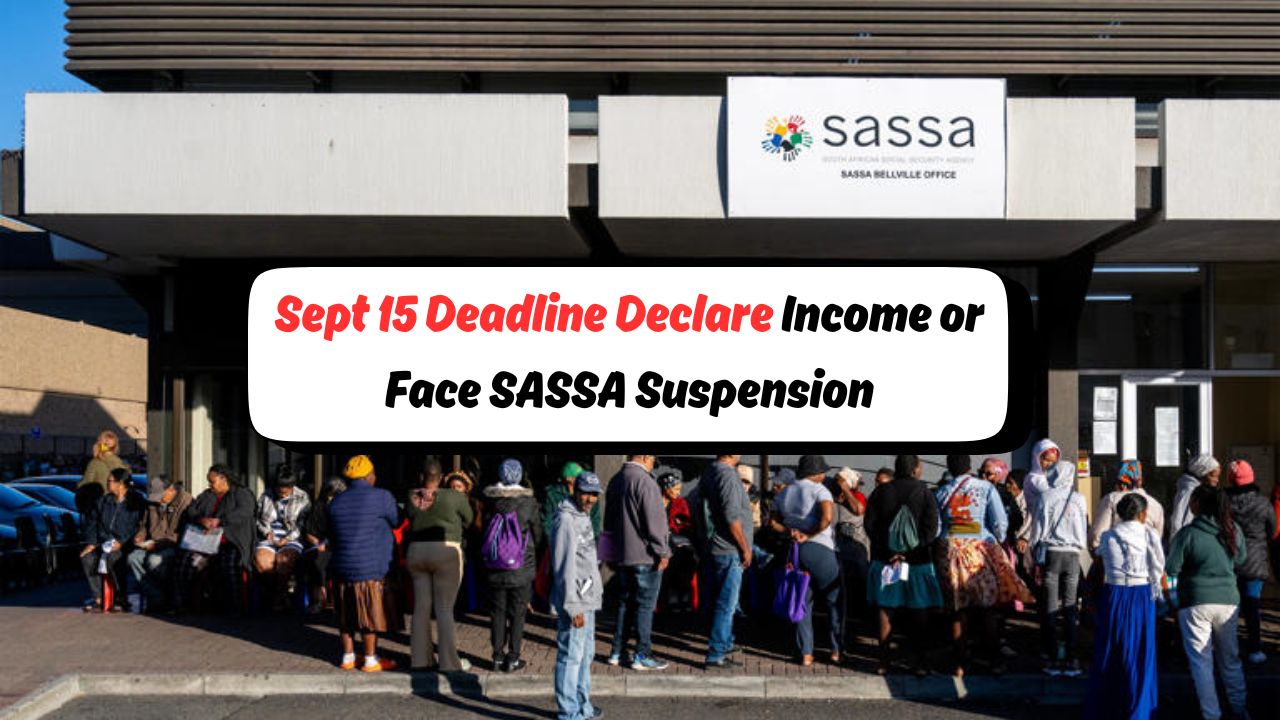Urgent Alert: SASSA Grant Suspensions Commencing September 15 for Incomes Exceeding R8,070: South Africans who rely on social grants should be aware of the upcoming changes announced by the South African Social Security Agency (SASSA). As of September 15, the agency will implement a policy that suspends grants for individuals whose monthly incomes exceed R8,070. This decision, aimed at ensuring that limited resources are directed to those in genuine need, has raised concerns among beneficiaries who may find themselves affected. South Africa’s social welfare system plays a crucial role in supporting vulnerable populations, and any adjustments to eligibility criteria can have significant impacts.
Understanding the SASSA Grant Suspension Policy
The new SASSA grant suspension policy marks a pivotal change in how social welfare benefits are administered. By setting a threshold at R8,070, SASSA seeks to ensure that only those in the most need continue receiving financial support. This decision comes as part of broader efforts to streamline public spending and redirect funds to the most vulnerable sectors of society. It’s important for current beneficiaries to assess their financial situations carefully, as exceeding this income threshold could result in the suspension of their grants. SASSA has emphasized that this measure is not intended to punish those with rising incomes but rather to maintain the integrity and sustainability of the welfare system. Beneficiaries are encouraged to report any changes in their income promptly to avoid unexpected disruptions.
How South Africans Are Preparing for the Change
As the date for the implementation of the new suspension policy approaches, many South Africans are taking proactive steps to understand and prepare for potential changes in their financial support. Community organizations and social workers are engaging with affected individuals, providing guidance on budgeting and financial planning. Workshops and informational sessions are being organized to help beneficiaries understand the implications of the new policy and explore alternative sources of income or support. For some, this change represents an opportunity to seek employment or increase their earning potential, while others may need to explore other forms of assistance if their grants are suspended. The government has also been urged to provide clarity and support for those who will be most affected by the policy change, ensuring a smooth transition and minimizing the impact on vulnerable families.
Impact on South African Families and Communities
The impact of suspending SASSA grants for those earning above R8,070 will be felt keenly by families and communities across South Africa. For many households, these grants provide essential financial support for basic needs such as food, healthcare, and education. The policy change may force some families to make difficult choices, potentially leading to increased financial strain and hardship. In communities where unemployment remains high, the loss of grant income could exacerbate existing socio-economic challenges. However, it also presents an opportunity for communities to rally together, support each other, and seek creative solutions to improve financial resilience. Collaborative efforts between the government, non-profit organizations, and community leaders will be crucial in mitigating the adverse effects of this policy shift and ensuring that those in need continue to receive support.
Future Prospects and Alternatives for Grant Beneficiaries
As South Africa navigates the implications of the new SASSA grant suspension policy, beneficiaries are encouraged to explore future prospects and alternatives. This policy shift may inspire some to pursue new employment opportunities, vocational training, or educational programs that can enhance their earning potential. However, for those unable to increase their income sustainably, it is vital to explore other forms of social assistance and community support that may be available. Organizations focusing on skills development and job placement can play a pivotal role in helping affected individuals transition to a more self-sufficient lifestyle. Additionally, the government might consider introducing supplementary programs to assist those who fall just above the income threshold but still require financial support. As the landscape of social welfare continues to evolve, open dialogue and collaboration between the government, civil society, and the communities they serve will be essential in ensuring that no one is left behind.

